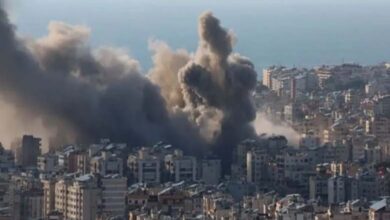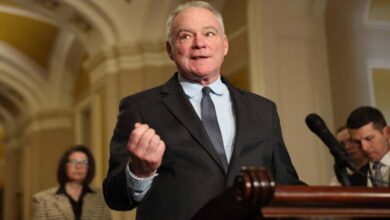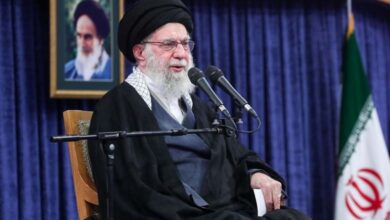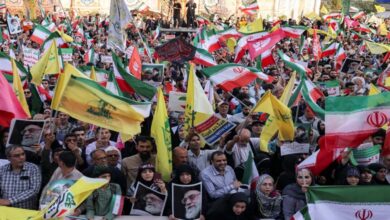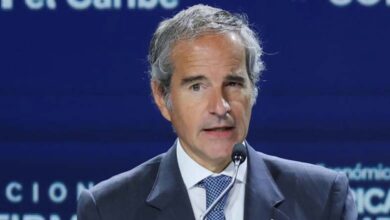Waqf al-Umma… A donation campaign for Gaza exposes a “Brotherhood scandal” involving the embezzlement of aid
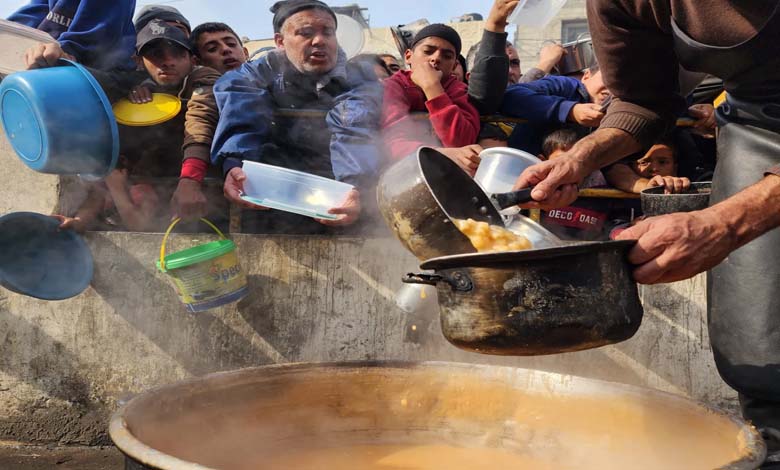
In one of the largest cases of exploiting the Gaza cause to raise funds since the outbreak of the war, the outlines of a major “financial scandal” involving senior Muslim Brotherhood figures and their allies in Turkey and Jordan are emerging. Nearly half a billion dollars were reportedly collected under the name “Waqf al-Umma” to support the people of Gaza.
-
The coexistence of opposites in Gaza: life pulsing among the dead
-
Ruling Gaza Until 2027: Details of the U.S. Draft Resolution at the UN Security Council
The unexpected twist came from Hamas itself, which issued an official statement completely distancing itself from the association and its leaders, stressing that the campaign did not represent the movement and that the funds had been used outside Gaza and outside any humanitarian purposes.
Over the past weeks, a wave of controversy and accusations has risen around the massive fundraising campaign led by the foundation “Waqf al-Umma”, which operates from Turkey.
This followed revelations by individuals affiliated with Hamas, activists, and experts on Islamist movements, accusing the Muslim Brotherhood of using the foundation to collect money in the name of Jerusalem and Gaza before appropriating it.
-
Hamas Fighters Inside the Yellow Line: A New Test for the Gaza Ceasefire
-
Unexploded ordnance: a silent terror haunts Gaza after the war
Various estimates point to amounts reaching nearly half a billion dollars in a single campaign, amid conflicting narratives and a complete lack of financial transparency.
Hamas statement: withdrawal of support and accusations of misappropriation
On 27 January 2024, Hamas issued an official statement addressed “to whom it may concern”, announcing the withdrawal of its political cover from three institutions: “Waqf al-Umma”, “Minbar al-Aqsa”, and “Kulluna Maryam”.
-
Secret U.S. Report: Hundreds of Israeli Violations in Gaza Under Investigation
-
Safe Corridor… Details of a New US Offer to Hamas in Gaza
The statement also withdrew support from several individuals explicitly named: Saeed Abu al-Abd (Yazid Noufal), Fouad al-Zubaidi, Abdullah Samir, Khaldoun Hijazi, Ahmad al-Umari, and Zaid al-‘Is.
According to Hamas, these institutions had been “taken over” in the past two years and were operating “outside the movement’s directives”, using old accreditations to raise funds “in ways harmful to the people of Gaza and Jerusalem”. Committees were formed to regain control of the organizations but without success.
However, the statement did not include any specific figures or financial details.
-
Israeli raids on Gaza: the heaviest loss of life in a single night since the ceasefire
-
After the Truce… a Silent Enemy Threatens Gaza
How did the case begin?
The case erupted when a young man known as Khaled Mansour, presenting himself on social media as a Hamas insider, published a series of posts accusing “Waqf al-Umma” and several individuals associated with it of seizing funds donated for Gaza.
His posts quickly spread across Arab and Turkish platforms. A heated exchange then followed between him and the Brotherhood-affiliated scholar Mohamed al-Mokhtar al-Shanqiti, who appeared in messages urging him to stop attacking “Waqf al-Umma”.
This dispute broadened the public debate, until Hamas intervened with its official statement, giving the case political and organizational significance.
-
New Gaza between American Opportunity and Palestinian Fears
-
Harsh living and the specter of war: Gaza’s exhausted residents still suffering
With the escalation of the war on Gaza, the “Waqf al-Umma” campaign surfaced on social media as one of the largest donation drives, led by numerous religious and media figures based in Istanbul.
Among them were well-known preachers and influencers in the Muslim world, several affiliated with the Brotherhood, who used their large platforms to mobilize donors.
The campaign relied on all modern promotional tools:
– public conferences in Turkey
– live broadcasts on Facebook and YouTube
– sponsored advertisements
– emotionally charged religious speeches
– videos highlighting children and destruction in Gaza
According to published documents, “Waqf al-Umma” has launched more than 2,000 fundraising campaigns since 2013, but the latest campaign alone reportedly handled nearly 500 million dollars within weeks.
-
Arab States Reject Israeli Plan to Divide Gaza
-
Vance Tackles Thorny Issues in Gaza: Hamas’s Arsenal and Reconstruction
What is “Waqf al-Umma” and who runs it?
According to its official website, “Waqf al-Umma” is a charitable endowment based in Turkey since 2013, focusing on projects related to Jerusalem, Al-Aqsa Mosque, and Gaza. Its activities include fundraising campaigns, public events, conferences, and programs titled “Sanad al-Waqf”.
Archive materials and content published on platforms close to the Brotherhood show that the campaign is supported by influential religious and media personalities within the Brotherhood movement. Several administrators—mainly from Jordan and Lebanon—were among those named in the Hamas statement.
-
Gaza Truce: Israel identifies a body as U.S. diplomatic efforts intensify to sustain calm
-
The recent escalation in Gaza: will it accelerate international oversight of the truce?
“Half a billion dollars”
In the days that followed, the figure of 500 million dollars circulated widely in Arab media and on social networks as the amount collected during the latest campaign.
Maher Farghali, a specialist in Islamist movements, stated that the Brotherhood “stole half a billion dollars in the name of Gaza”, basing his claim on the Hamas statement and the foundation’s activities.
He added that the Brotherhood had a long history of “exploiting Gaza, Al-Aqsa, and the Palestinian cause to raise funds”.
-
Serious truce violation: Israel strikes Rafah after vehicle targeted in Gaza
-
Trump announces the start of Phase Two of the plan to end the Gaza war: pathway and obstacles
Farghali explained that a young Hamas member named Khaled Hassan had begun uncovering corruption within the foundation, identifying several individuals he considered responsible.
He added that the intervention of the preacher al-Shanqiti to defend the foundation prompted Hamas to step in officially and accuse the organization of diverting half a billion dollars in donations intended for Gaza.
Farghali concluded that “Waqf al-Umma” is run by a large group of religious figures based mainly in Istanbul, active in fundraising since 2013 and having launched more than 2,000 campaigns over the years.
The foundation had recently announced a large-scale marketing campaign involving journalists, preachers, and influencers, covering television networks, print media, digital platforms, as well as public conferences in Turkey to encourage donations.
-
Gaza After the Truce: Total Destruction and a Return Amid the Rubble
-
Between War and Reconstruction: How Can Gaza’s Economy Rise from the Rubble?
-
The War Winds Down in Gaza as Israel Begins Gradual Withdrawal
-
From Gaza to Re’im: Details of the Hostage Transfer Plan
-
Gaza Finally Breathes Again… Ceasefire Announcement Moment by Moment
-
Gaza Bids Farewell to Fire with Cheers and Tears, Awaiting the Implementation of the Agreement


